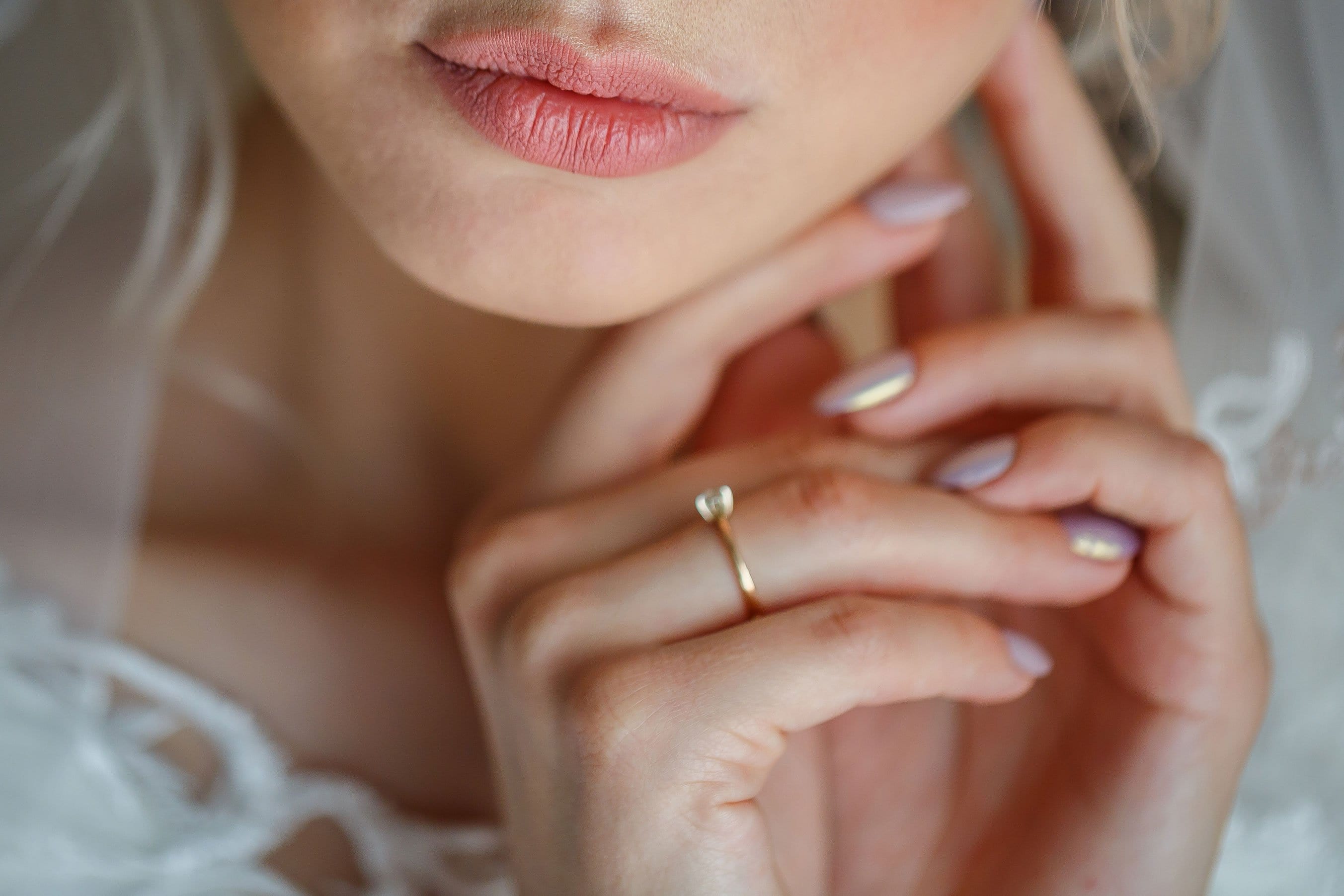Jewellery Care and Cleaning Guide
Remove Your Jewellery for Certain Activities
Fine jewellery, such as engagement and wedding rings, are designed to withstand general everyday wear. Diamonds are measured at 10 on the Mohs hardness scale which makes it resistant to scratches and daily wear. Even Moissanite, is measured at 9.25 on the Mohs scale also durable to everyday wear. Some gemstones, like emeralds and sapphires, are more susceptible to damage, so should be worn with a bit more care and attention.
Like softer gemstones, certain malleable metals are more likely to retain damage due to daily wear. When performing activities that involve heavy labour such as home DIY or working-out in the gym, you should remove any fine jewellery to avoid risking damage. And if your profession involves a lot of manual labour you are best removing it and leaving it in a safe place. If you plan on spending a day at the beach or pool, leave your jewellery at home. In addition to running the risk of losing your jewellery, salt water and chlorine can damage some precious metals.
Gemstones are exposed to many different elements such as hand creams and oils when you wear them. Because of this, an organic build-up can develop on near-colourless gemstones. It is not harmful to the gemstone and can be easily removed with a lint-free/microfibre cleaning cloth. Another way to avoid this from happening too often is to remove jewellery before applying any creams, gels, or perfumes.
While gemstones like Moissanite and diamond are extremely strong, settings and prongs can be damaged, causing the stones to become loose or even fall out. Nobody wants to see a scratch on their jewellery, but keep in mind there are many aspects to each piece of jewellery, and each should be considered before making your purchase.
Professionally Clean Your Jewellery
Getting your fine jewellery professionally cleaned and polished at least once a year can help extend the life of your piece as well as ensure it looks as beautiful and shiny as the day you bought it. Insurance companies recommend having your fine jewellery cleaned and thoroughly checked once a year. That is why all our NJ pieces come with a free annual cleaning service for the first 3 years where we check for any damage or wear and tear to try and avoid any loss of gemstones before it happens! We also give every piece a full refurb to return it to its original sparkle and shine.
Take Care When Cleaning at Home
If you are cleaning your fine jewellery at home, you should know what stones and metals you are dealing with.
Never clean your jewellery with harsh chemicals as this can lead to corrosion on your settings.
However, you can clean most fine jewellery by soaking it in a bowl of warm water with liquid dish soap. Scrub with a soft toothbrush, then leave it to dry on a cloth. If you are still left with any soap residue you can gently buff it away with a dry microfibre cloth.
If using a professional jewellery cleaning solution make sure you know what metal, your jewellery is made of before you use it. Whether it is silver, gold, plated or platinum; each have unique properties that can react differently to different cleaning products. If you are unsure of the metal, please contact us with any questions and our team will be happy to advise.
Durable gemstones such as Moissanite or diamonds can be cleaned with an ultrasonic cleaner. Ultrasonic cleaning uses ultrasound (or sound waves) and a cleaning solvent to loosen dirt particles that accumulate on the surface of jewellery. This cleaning method uses bubbles induced by high frequency pressure to agitate the liquid inside the machine, meaning any soft and porous gems will incur damage. However, you should never use an ultrasonic cleaner to clean jewellery that have softer gemstones in them, such as emeralds, pearls and opals which are brittle and can crack/shatter.
Storing Your Jewellery
Storing your jewellery away properly is a good way to prolong a piece’s life and to keep it looking as good as the day you bought it.
Avoid putting all your jewellery all in one place because the harder stones like diamond and Moissanite can scratch and damage other pieces of jewellery. Also, things like necklaces and chains can become tangled which can lead to damage or breakage and are very frustrating to untangle! You should store your jewellery in individual fabric lined compartments to reduce the risk of damaging them.
Get it Insured
Insurance is a great safety net to reduce worries about loss or theft which means you can thoroughly enjoy wearing your jewellery. Most fine jewellery can be added onto your homeowner’s insurance, however if you have any high-value items or multiple pieces we recommend using a jewellery-specific insurance such as TH March, contact us for more info.








